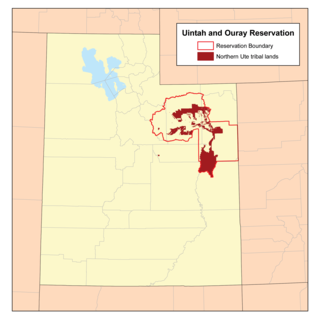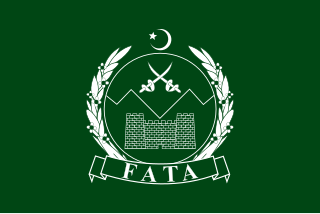Related Research Articles

The Politics of Pakistan takes place within the framework established by the constitution. The country is a federal parliamentary republic in which provincial governments enjoy a high degree of autonomy and residuary powers. Executive power is vested with the national cabinet which is headed by Prime Minister of Pakistan, who works coherently along with the bicameral parliament and the judicature. Stipulations set by the constitution provide a delicate check and balance of sharing powers between executive, legislative, and judicial branches of the government.

Tribal sovereignty in the United States is the concept of the inherent authority of indigenous tribes to govern themselves within the borders of the United States.

The Supreme Court of Pakistan is the apex court in the judicial hierarchy of the Islamic Republic of Pakistan.
The judiciary of Australia comprises judges who sit in federal courts and courts of the States and Territories of Australia. The High Court of Australia sits at the apex of the Australian court hierarchy as the ultimate court of appeal on matters of both federal and State law.

A supreme court is the highest court within the hierarchy of courts in most legal jurisdictions. Other descriptions for such courts include court of last resort, apex court, and highcourt of appeal. Broadly speaking, the decisions of a supreme court are not subject to further review by any other court. Supreme courts typically function primarily as appellate courts, hearing appeals from decisions of lower trial courts, or from intermediate-level appellate courts.

The judiciary of Pakistan is a hierarchical system with two classes of courts: the superior judiciary and the subordinate judiciary. The superior judiciary is composed of the Supreme Court of Pakistan, the Federal Shariat Court and five High Courts, with the Supreme Court at the apex. There is a High Court for each of the four provinces as well as a High Court for the Islamabad Capital Territory. The Constitution of Pakistan entrusts the superior judiciary with the obligation to preserve, protect and defend the constitution. Neither the Supreme Court nor a High Court may exercise jurisdiction in relation to Tribal Areas, except otherwise provided for. The disputed regions of Azad Kashmir and Gilgit–Baltistan have separate court systems.

The Frontier Crimes Regulations (FCR) were a special set of laws of British India, and which were applicable to the Federally Administered Tribal Areas (FATA). They were enacted by in the nineteenth century and remained in effect in Pakistan until 2018. They were extended to the Gilgit Agency in Jammu and Kashmir in 1901 and to Baltistan in 1947, remaining in effect till the 1970s.

The Uintah and Ouray Indian Reservation is located in northeastern Utah, United States. It is the homeland of the Ute Indian Tribe, and is the largest of three Indian reservations inhabited by members of the Ute Tribe of Native Americans.

The Peshawar High Court is the highest judicial institution of Khyber-Pakhtunkhwa. It is located in the provincial capital Peshawar. The Parliament passed a bill extending the jurisdiction of the Supreme Court (SC) and the Peshawar High Court (PHC) to Federally Administered Tribal Areas (FATA), one of a handful of reforms paving the way for a merger of the tribal areas with Khyber Pakhtunkhwa.

The Federally Administered Tribal Areas was a semi-autonomous tribal region in north-western Pakistan that existed from 1947 until being merged with neighbouring province Khyber Pakhtunkhwa in 2018 with the Twenty-fifth Amendment to the Constitution of Pakistan passed by the Parliament as well as Provincial Assembly of KPK. It consisted of seven tribal agencies (districts) and six Frontier Regions, and were directly governed by Pakistan's federal government through a special set of laws called the Frontier Crimes Regulations.
The Federal Court of India was a judicial body, established in India in 1937 under the provisions of the Government of India Act 1935, with original, appellate and advisory jurisdiction. It functioned until the Supreme Court of India was established in 1950. Although the seat of the Federal Court was at Delhi, however, a separate Federal Court of Pakistan was established in Pakistan in Karachi after the Partition of India. There was a right of appeal to the Judicial Committee of the Privy Council in London from the Federal Court of India.
Administrative System of FATA was the system by which semi-autonomous tribal region of Federally Administered Tribal Areas was governed.

The Twenty-fifth Amendment of the Constitution of Pakistan, officially known as the Constitution Act, 2018, was passed by the Parliament of Pakistan and the Khyber Pakhtunkhwa Assembly in May 2018. Under the amendment, the Federally Administered Tribal Areas (FATA) and Provincially Administered Tribal Areas (PATA) are to be merged with the province of Khyber Pakhtunkhwa (KP).
The FATA Interim Governance Regulation, 2018 was a law signed by the President of Pakistan on May 28, 2018, which replaces the Frontier Crimes Regulations (FCR) and outline how the Federally Administered Tribal Areas will be governed "within a timeframe of two years" as the region is merged with Khyber Pakhtunkhwa through the passage of the Thirty-first Amendment to the Constitution of Pakistan. An official described the regulation as a combination of the FCR and the rejected Tribal Areas Rewaj Act.
The Tribal Areas Rewaj Act is a bill which was introduced to the National Assembly of Pakistan and subsequently withdrawn by the government, having been met with widespread opposition. The proposed legislation called for the merger of the Federally Administered Tribal Areas (FATA) with the province of Khyber Pakhtunkhwa within five years. The act was intended to replace the Frontier Crimes Regulations (FCR) and to extend the jurisdiction of the Supreme Court of Pakistan and the Peshawar High Court over FATA.
The Pakistan Levies, or Federal Levies, are provincial paramilitary forces (gendarmeries) in Pakistan, whose primary missions are law enforcement, assisting the civilian police in maintaining law and order, and conducting internal security operations at the provincial level. The various Levies Forces operate under separate chains of command and wear distinct patches and badges.

Dosso v. Federation of Pakistan was the first constitutional case after the promulgation of Constitution of Pakistan of 1956 and an important case in Pakistan's political history. The case got prominence as it indirectly questioned the first martial law imposed by President Iskander Mirza in 1958.
McGirt v. Oklahoma, 591 U.S. ___ (2020), was a landmark United States Supreme Court case which ruled that, as pertaining to the Major Crimes Act, much of the eastern portion of the state of Oklahoma remains as Native American lands of the prior Indian reservations of the Five Civilized Tribes, never disestablished by Congress as part of the Oklahoma Enabling Act of 1906. As such, prosecution of crimes by Native Americans on these lands falls into the jurisdiction of the tribal courts and federal judiciary under the Major Crimes Act, rather than Oklahoma's courts.
On 31 May 2018, with the application of 25th Amendment, Federally Administrated Tribal Areas ceased to exist, and stood merged into neighbouring province of Khyber Pakhtunkhwa.
Oklahoma v. Castro-Huerta, 597 U.S. ___ (2022), was a United States Supreme Court case related to McGirt v. Oklahoma, decided in 2020. In McGirt, the Supreme Court ruled that the U.S. Congress never properly disestablished the Indian reservations of the Five Civilized Tribes in Oklahoma when granting its statehood, and thus almost half the state was still considered to be Native American land. As a result of McGirt, crimes under the Major Crimes Act by Native Americans in the former reservations are treated as federal crimes rather than state crimes.
References
- ↑ Shah, Waseem Ahmad (2018-04-23). "VIEW FROM THE COURTROOM: Extension of courts' jurisdiction to Fata still depends on govt". Dawn . Pakistan Herald Publications . Retrieved 2018-05-28.